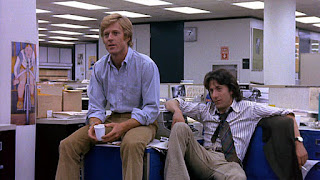 Annie Hall introduced several innovative narrative conventions into the romantic comedy genre that were a departure from the classical Hollywood style and were greatly influential on the genre as it evolved into the 1980s and 1990s. Identify two conventions/qualities that stood out to you along these lines and discuss why you think that they are innovative and/or influential. The film is very much seeped in 1970s culture but approaches the era from a much different (i.e. comedic) perspective. What similarities and differences does it have to other films that we have viewed in class this semester?
Annie Hall introduced several innovative narrative conventions into the romantic comedy genre that were a departure from the classical Hollywood style and were greatly influential on the genre as it evolved into the 1980s and 1990s. Identify two conventions/qualities that stood out to you along these lines and discuss why you think that they are innovative and/or influential. The film is very much seeped in 1970s culture but approaches the era from a much different (i.e. comedic) perspective. What similarities and differences does it have to other films that we have viewed in class this semester?FINAL PROJECT ALERT!!!
I apologize for the confusion about the due date for the final project. I have decided to extend the deadline in order to help out those who need extra time. (If you still want to submit your project in class, next Wednesday, the 5th, please feel free.)
Here is the schedule for the remainder of the semester:
Wednesday, December 5: Class discussion of Annie Hall and screening of Raging Bull
Monday, December 10: Final Projects due by 5 PM. See below for specifications regarding where you should submit your project:
- Written component (Everyone) : E-mail (as a Microsoft Word attachment) to your TA (Defne: dtuzun@uwm.edu/Andrea: andreamaio@earthlink.net) by 5pm. Those submitting written projects should have their images embedded in the body of the document.
- Visual Project, with still images: Save as .jpg files, and burn on to a DVD or CD. Submit in person to Prof. Schreiber in her office (Mitchell B55A) between 3 and 5 pm or by 5 pm to your TA's mailbox in the Film Department Office (Mitchell B70).
- Visual Project, with moving images: Save as a Quick Time movie file, and burn onto a DVD (follow still images submission protocol listed above).
Wednesday, December 12: Presentation of final projects (off of course blog).


